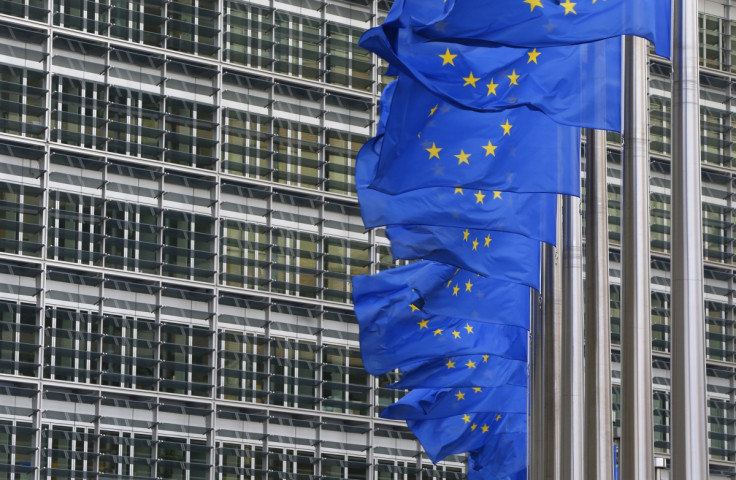EU roaming charges to be scrapped by 2017

EU citizens travelling to any of the 28 member countries will be able to use their mobile phone without having to pay roaming charges from June 2017.
Following 12 hours of negotiations, the European Commission said on Tuesday morning (30 June) that it, along with the European Parliament and Council, have reached an agreement on key elements for a single market in telecoms, which will end roaming charges when travelling in the EU by June 2017.
The elimination of roaming charges within the EU has been something which has been under discussion for the last eight years, though European commissioners had hoped to have eliminated the charges by July 2014.
What the agreement means in practical terms is that from 15 June, 2017 you can use your mobile device when travelling in the EU and pay the same prices as at home. For instance, if you pay for a monthly volume of minutes, SMS and data in your country, any voice call, SMS and data session you use while travelling abroad in the EU will be deducted from that volume as if you were at home, with no extra charges.
The reason the Commission has given for the delay in getting roaming charges eradicated is the need for a "thorough review" of the prices that operators charge each other for the use of their networks.
Ernest Doku, telecoms expert at uSwitch.com, hopes there won't be another U-turn from the EU:
"We've heard this before. Data roaming charges were due to be abolished in the EU at the end of 2015 and the U-turn confused and frustrated people. Mid 2017 is a long way off, particularly when a fifth of UK holidaymakers have returned home from an EU trip in the past year to find their bill was, on average, £61 higher than usual - amounting to £573 million collectively. Of these, around one in six had to pay upwards of £100 on top of their normal bill. Let's hope there'll be no more backtracking after Europe's mobile networks have had their say."
Abuse
The Commission has also built in a "fair use safeguard" against customers abusing the ruling to take advantage of cheaper calls in one particular country:
"The rules prevent abusive uses: for example, if the customer buys a SIM card in another EU country where domestic prices are lower to use it at home; or if the customer permanently stays abroad with a domestic subscription of his home country. This is not the usual use of roaming as the vast majority of Europeans experience it."
Since discussions began about ending roaming charges within the EU, the price of those charges has been consistently dropping every year since 2007 with the overall drop being more than 80%.
While the prices won't be reduced further this summer, they will drop again in July 2016 with operators able to charge "a small additional amount to domestic prices up to €0.05 (£0.03) per minute of call made, €0.02 per SMS sent, and €0.05 per MB of data (excl. VAT)."
This is down from the current rate of €0.19 per minute of call made, €0.06 per SMS sent, and €0.20 per MB of data, (excl. VAT).
Some operators have already begun offering customers the ability to use their phones abroad without incurring roaming charges. Three UK's Feel at Home offer for example allows users to use their phones in 18 countries around the world.
Net Neutrality
The European Commission also announced that it will "introduce for the first time rules safeguarding the open Internet in the EU".
These so-called Net Neutrality rules mean that internet service providers will be prevented from blocking or slowing down (throttling) online services and create "truly common EU-wide Internet rules, contributing to a single market and reversing current fragmentation".
There are two main tenants to the new rules. The first states: "Every European must be able to have access to the open Internet and all content and service providers must be able to provide their services via a high-quality open Internet."
The second says that "all traffic will be treated equally" which means, for example, that there can be no paid prioritisation of traffic in the internet access service. At the same time however, equal treatment allows "reasonable day-to-day traffic management according to justified technical requirements, and which must be independent of the origin or destination of the traffic".
There will be a number of strict exceptions to the rules including IPTV, high-definition videoconferencing or healthcare services like telesurgery as they "require a significant improvement in quality or the possibility to guarantee some technical requirements to their end-users that cannot be ensured in the best-effort open Internet."
Net neutrality has been a major point of contention in the US in recent years, with the Federal Communications Commission (FCC) voting in February to prevent ISPs from throttling users' internet traffic.
"The Internet is simply too important to allow broadband providers to be making the rules. This is no more a plan to regulate the Internet than the First Amendment is to regulate free speech," said FCC chairman Tom Wheeler.
© Copyright IBTimes 2025. All rights reserved.






















